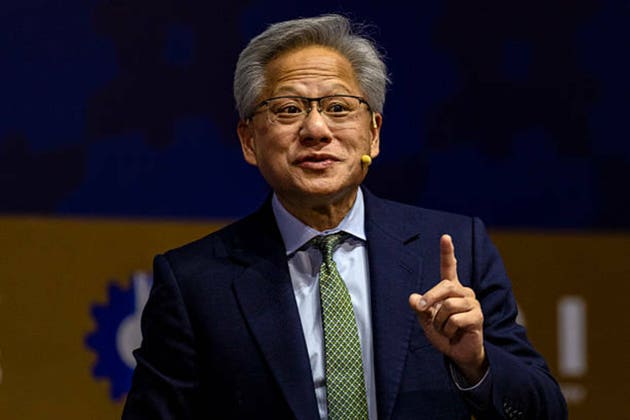The event has wrapped up, and you can find timestamps to each talk in the recording down below. Video links for the talks are available in the schedule below.
This year's gathering will spotlight three of the most dynamic frontiers in AI and data science:
- Agents - autonomous systems reshaping how we interact with technology.
- Relational Foundation Models - unlocking structure and meaning across complex data.
- Fast LLM Inference - pushing the boundaries of speed and scalability in large language models.
The event will bring together leading researchers, innovators, and practitioners for a full day of cutting-edge talks, interactive sessions, and collaborative conversations, and opportunities to connect with a vibrant community at the forefront of data science.
The Stanford Graph Learning Workshop will be held on Tuesday, Oct 14 2025, 08:00 - 18:00 Pacific Time.
The event will take place at Stanford University and will be live-streamed online. Free registrations are available. Register here.
- Yimin Fan: Prediction of Cellular Morphology Changes Under Perturbations with a Transcriptome-Guided Diffusion Model
- Robert Yang: Modular Prompt Patching for Behavioral Drift in Continuously Updated LLMs
- Rodrigo da Motta Cabral-Carvalho: AgentMarket: Generative Agents in Dynamic Market Networks
- Guiran Liu: SecureBeam-GNN: A Heterogeneous Graph Neural Network for Secrecy Rate Maximization in IRS-Assisted Spectrum Sharing Networks
- Binrong Zhu: A GNN-Based Super-Perception Agent for Multimodal Innovative City Planning and Management
- Yang Liu: CommFormer-PLS: Multi-Agent Graph Communication Learning for Secure Power Control in Spectrum Sharing Networks
- Heming Zhang: GALAX: Graph-Augmented Language Model for Explainable Reinforcement-Guided Subgraph Reasoning in Precision Medicine
- Michael Simon: Aligning Scientific Arguments as Conceptual Knowledge Graphs
- Arnav Ramamoorthy: VLMGraph: Vision-Language Models on Graph Reasoning through Algorithmic Traversal Guidance
- Tim Xu: OmniCellTOSG: The First Text-Omic Dataset and Foundation Model for Single-Cell Signaling Graph Modeling and Analysis
- Viswanath Ganapathy: Exploring Small Language Models as Relational Learners
- Arijit Khan: Explainable and Responsible AI with GNNs and GraphRAG
- Fabrizio Dimino: FinReflectKG: Agentic Financial Knowledge Graph Construction and Evaluation
- Tong Wu: Universal Graph Learning for Power System Reconfigurations: Transfer Across Topology Variations
- Jacob Chmura: OpenDG: A Modular Framework for Machine Learning on Dynamic Graphs
- Zachary Blumenfeld: GDS Agent for Graph Algorithmic Reasoning
- Omid Bazgir: GRASP: Graph Reasoning Agents for Systems Pharmacology with Human-in-the-Loop
- Yuan Chiang: Foundation Machine Learning Interatomic Potentials and Benchmarks
- Boris Revechkis, Ph.D.: Boosting GraphRAG Accuracy & Reasoning and Reducing Deployment Effort with a Novel “Schema-as-Data” Architecture
- Themistoklis Vargiemezis: WindMiL: Equivariant Graph Learning for Wind Loading Prediction
- Waqas Ishtiaq: CST-AFNet: A Dual Attention-Based Deep Learning Framework for Intrusion Detection in IoT Networks
- Tom Palczewski: RELATE: A Schema-Agnostic Perceiver Encoder for Multimodal Relational Graphs
- Joseph Meyer: RGP: A Cross-Attention Based Graph Transformer for Relational Deep Learning
- Haoteng Yin: Privately Learning from Graphs with Applications in Fine-Tuning Large Language Models
- Fuhai Li: OmniCellAgent: An AI Co-Scientist for Autonomous Single-Cell Omics and Graph-Grounded Precision Medicine Discovery
- Zhiyang Wang: Size Generalizable Graph Transformers
- Ratna Kandala, Katie Hoemann: Beyond Co-occurrence: Dynamic Emotion Word Graphs from Contextual Embeddings
- Shubham Gupta: Running Large Models on Small (Edge) Devices
- Moritz Schaefer: Precision Pathology Diagnostics with Multimodal Learning
- Parth Sarthi: Optimas: Optimizing Compound AI Systems with Globally Aligned Local Rewards
- Arpandeep Khatua: Evolving Real World with Simulated Users' Feedback
- Nils Walter: Interpreting & Understanding Predictions of Relational FMs
- Yangyi Shen: Zero-Shot Generalization of GNNs over Distinct Attribute Domains
- Tianlang Chen: RelGNN: Composite Message Passing for Relational Deep Learning
- Yanay Rosen: How to Build the Virtual Cell with AI
- Rishabh Ranjan: Relational Transformer: Toward Zero-Shot Foundation Models for Relational Data
- Vijay Prakash Dwivedi: Relational Graph Transformer
- Joy He-Yueya: CollabLLM: From Passive Responders to Active Collaborators
- Charilaos Kanatsoulis: Next Generation Architectures for Relational Deep Learning
- Kuan Pang: Creating a Donor Foundation Model for the AI Virtual Cell
- Zoe Piran: Exposing Spatio-Temporal Cellular Dynamics Within Cells' Continuum
- Ali Parviz: Are Large Language Models Good Temporal Graph Learners?
- Haoyang Fang: Mlzero: A Multi-Agent System for End-to-End Machine Learning Automation
- Subhodip Biswas: AI-powered Network Troubleshooting at Cisco ThousandEyes
Organizing committee
Lata Nair, Charilaos Kanatsoulis, Rok Sosic, Marcel Roed, Vijay Prakash Dwivedi, Zoe Piran, Jure Leskovec
.png)




